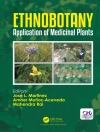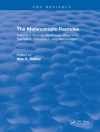The ‘Doctrine of Homeopathy – Premium Collection’ is a comprehensive anthology that delves into the intricate philosophies and practices that have shaped homeopathy over the centuries. This collection offers a rich tapestry of ideas, ranging from foundational concepts to contemporary adaptations, illustrating the diverse literary styles that define this field. Readers are guided through compelling narratives, each contributing to a deeper understanding of homeopathic principles. Within its pages, one finds compelling pieces of analytical depth, presenting critiques and defenses that make this anthology an essential resource for those exploring alternative medicine and its cultural significance. The collection features significant contributions from distinguished authors such as Samuel Hahnemann and John Ellis, among others. These authors, pivotal in the development and popularization of homeopathic medicine, bring diverse perspectives that resonate with historical and cultural contexts. Their works collectively reinforce the core tenets of homeopathy, while also reflecting broader literary and scientific movements contemporary to their time. The anthology elegantly aligns these varied voices, crafting a narrative that transcends individual contributions to highlight a unified exploration of homeopathic medicine. This anthology offers readers an unparalleled opportunity to immerse themselves in a multifaceted dialogue on homeopathy. It is not merely a compendium of writings but a scholarly exploration that challenges and informs. Highly recommended for both novices and experts, this collection provides a unique educational experience, facilitating an appreciation for the breadth and depth of homeopathic discourse. The anthology’s ability to intertwine historical perspectives with ongoing debates makes it a crucial text for anyone invested in medical humanities and the intersections of culture and health.
Giới thiệu về tác giả
Samuel Hahnemann (1755-1843) was a German physician who is best known as the founder of homeopathy, a system of alternative medicine based on the principle that ‘like cures like’. Hahnemann became disillusioned with the medical practices of his time, which often did more harm than good, prompting him to seek a gentler form of treatment. His extensive research and clinical experiments led him to develop the principles of homeopathy, which he first articulated in his seminal work, ‘The Organon of the Healing Art’, published in 1810. His other notable contribution to the field is ‘The Doctrine of Homeopathy – Premium Collection’, which encapsulated Hahnemann’s mature thoughts on the topic and serves as a foundational text for practitioners. Hahnemann’s literary style is characterized by meticulousness and a methodical approach to the subject matter, underpinning his scholarly pursuit of a rational and humane form of medicine. His work has been both celebrated and controversial but has left an indelible mark on the field of medicine, inspiring a rich tradition of homeopathic practice that continues to this day. Hahnemann’s legacy is not only in his writings but also in the global institution of homeopathy, which adheres to the principles he established over two centuries ago.












